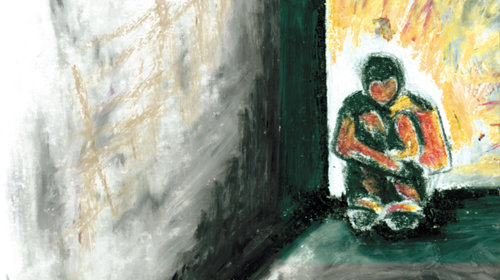U.S. Military Treatment of Juvenile Detainees Undergoes International Scrutiny


When the U.S. ratified the international treaty on the rights of children in armed conflict in 2002, it committed to protecting children under 18 from military recruitment and deployment to war and guaranteeing basic protections to former child soldiers, including those in U.S. military custody. Formally known as the (OPAC), the treaty requires ratifying nations to submit periodic reports on the progress they have made to implement their treaty obligations to the U.N. Committee on the Rights of the Child, a body of independent human rights experts charged with monitoring countries’ compliance with the treaty. The U.S. government’s latest will be reviewed by the Committee in January 2013. The to be discussed during this review, which was adopted by the Committee on July 3, raises serious concerns regarding U.S. compliance with the Protocol and provides an opportunity for the United States to provide transparency and accountability for its treatment of juveniles in military custody.
The Committee requested that the U.S. provide detailed information regarding the number of juveniles detained by U.S. military forces, their treatment in detention, reasons for their detention, and the physical and psychological recovery assistance available to them. As of 2008, the most recent year for which public data is available, juveniles had been detained in Afghanistan, Iraq and Guantanamo Bay since 2001. Responding to an ACLU request for updated figures in February 2010, the Department of Defense stated that fewer than five juveniles remained in U.S. military custody in Iraq and Afghanistan at that time. But we have insufficient information about measures the U.S. has taken to rehabilitate or reintegrate the children it has detained, or the remedies provided to children who suffered harm in U.S. custody. Indeed, although the U.S. maintains that, “in detaining juvenile combatants, the United States seeks to restore some hope for their future and to prepare them for reintegration into society,” that the U.S. has failed to provide rehabilitation or reintegration assistance to former juvenile detainees as mandated by the Protocol, let alone remedies for children subjected to abuse and wrongful detention.
Jan Sher Khan is just one of the many children whose lives have been damaged by the U.S. failure to adhere to international human rights standards for children detained in armed conflict. Khan, now 24, was detained for six years at Bagram without ever being charged with a crime. According to a , he was repeatedly beaten while in U.S. custody, and as a result has suffered from frequent headaches, mood swings, and the stigma of being labeled a “terrorist,” which he fears will make it nearly impossible for him to rebuild his life, find a job, get married and start a family. “Sometimes I feel like I’m still in prison,” he told Reuters. Another former juvenile detainee, Kamil Shah, who was 16 when he was captured and was held in Bagram for five years without charge, said of his detention: “I was innocent. I lost my education. I lost everything.”
The prolonged detention, often without charge or trial, and ill treatment of juveniles by the U.S. military extends from the mountains of Afghanistan to the shores of Guantanamo, where Omar Khadr, a Canadian citizen and former child soldier who was detained in 2002 at the age of 15 and was convicted by a military commission, continues to linger in a legal limbo. Although the Canadian and U.S. governments for Khadr’s repatriation to Canada provided he served one more year at Guantanamo, the Canadian government has yet to request the transfer of Khadr into Canadian custody. Canadian Senator Romeo Dallaire recently circulated an to bring Khadr to Canada, which has garnered significant public support. Khadr is the youngest prisoner still detained at the naval base. Friday marks the fateful ten year anniversary of his .
Mohammed Jawad, another former child soldier and ACLU client was illegally held at Guantanamo for almost seven years. He was released in August 2009, after a federal court found that the government had no credible evidence to justify his detention. Jawad’s mistreatment during detention, as well as an assessment of the U.S. government’s failure to adequately respond to allegations of detainee abuse, is chronicled in a July 2011 article written by his military defense lawyer. The Committee is seeking information regarding allegations of torture and ill-treatment of Khadr and Jawad, as well as what remedies were provided to Jawad once he was released.
The U.S. reply to the Committee’s list of issues is due on November 16. For the sake of Khan, Khadr, Jawad and the other children who have been traumatized by U.S. detention, we hope the United States will fully answer the Committee’s questions, and take immediate, meaningful action to bring its policies and practices into compliance with the Protocol.
Learn more about children's rights: Sign up for breaking news alerts, , and .

